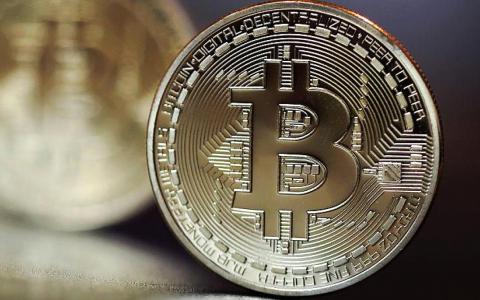
Bitcoin is increasingly becoming part of a mainstream investor’s wallet. It made bonafide millionaires out of those who took a bite early, and while discussions about the concept of an unregulated digital payment system rage on, there are a group of millennials who are thinking about a cashless future — and putting their money where their thumbs are.
They’re part of a different 1%, the small number of Americans who’ve not only heard of bitcoin, but are buying, selling, and trading it on their smart phones and laptops.
What’s more, some millennials are using bitcoin as the basis for their long-term savings. And experts say that could shake the foundation that this country’s financial institutions have built their empires on.
Roshaan Khan, a 20-year-old senior at Virginia Commonwealth University, is one of those millennials.
Khan recently invested in bitcoin and ethereum — another form of cryptocurrency — and is encouraging his friends to do the same.
“All of my net worth is in cryptocurrencies, because I see them as the best way to escalate my ability to be financially secure and pay off my student loans,” Khan said. “I like the idea of decentralization, the fact that there’s a lot less corruption and political ties. That idea appeals to me … Not having to go through banks. Having financial control over our lives again.”
Andreas M. Antonopoulos, the author of Mastering Bitcoin and The Internet of Money, is familiar with this mistrust. He says that the concept of money on the internet isn’t only obvious and appealing to millennials — it’s the one system, he argues, that hasn’t betrayed them.
“When you talk to millennials who have been thoroughly disappointed by every single social institution -- the government, the church, the politics, the parties -- they can’t trust anyone anymore,” Antonopoulos said.
“They remember 2008, because it was the first big crash they’ve had, and many millennials have been unable to find work. They watched no bankers go to jail.”
Now that it’s time for them to start pushing around coins, millennials are choosing to do it digitally -- and on their own terms.
“It feels better to run my own savings plan by investing and reinvesting in new technology,” said Emil Thorsplass, a 24-year-old musician from Norway. “I still have my regular pension fund and my bills still have to be paid through a bank account, but cryptocurrency investments have become a central part of saving for me.”
But with great possibility comes staggering criticism. Some traditional investors argue that bitcoin, while not inherently flawed as a digital form of payment, is not worth investing in because it’s too volatile, and not backed by a central institution or government. Antonopoulos calls this argument a “lame” one, noting that sophisticated investors incorporate turbulent investments as part of a diverse portfolio.
“You can level criticisms on bitcoin. It’s obviously risky in that it is a 9-year-old technology that is still being experimented on to a great degree,” Antonopoulos said.
“For a small part of a portfolio, it gives you that low likelihood, high return mix, where there is a small chance that it does spectacularly well, and there is a non-negligible chance that it crashes completely. And if you’re willing to take that chance, and young people can because they have years to make up for it, it could be life-changing. People have had their lives changed.”
It’s a possibility that young people like Khan and Thorsplass are willing to strive for.
“I don't get very nervous about the volatility anymore,” Thorsplass, who’s made close to $5,000 since investing in 2015, said.
“I think that when you are in your twenties, with limited responsibility, investing most of what you have into something isn't that dramatic compared to what it might be for more established adults. I'm used to taking risks, so when I have a gut feeling I like to pull the trigger.”
Khan, who has seen a 40% return on his investments since he started two months ago, echoed similar sentiments.
“Maybe it’s because I’m just getting my feet wet, but it excites me more than anything else. The stock market is incredibly boring. There’s not enough action going on in the big stocks for a college student who doesn’t have a lot of money.”
But it’s important that anyone buying or selling bitcoin — millennial or not — understand that, while the currency itself may be unregulated, any money made from it is not.
“There’s nothing illegal about owning bitcoin or using bitcoin or other cryptocurrencies, you just need to educate yourself before investing or owning these or using these,” said Tyson Cross, an attorney who specializes in cryptocurrency.
“You could very easily accidentally get yourself into some trouble on the tax side, because you were accruing capital gains without even realizing that they were taxable.”



